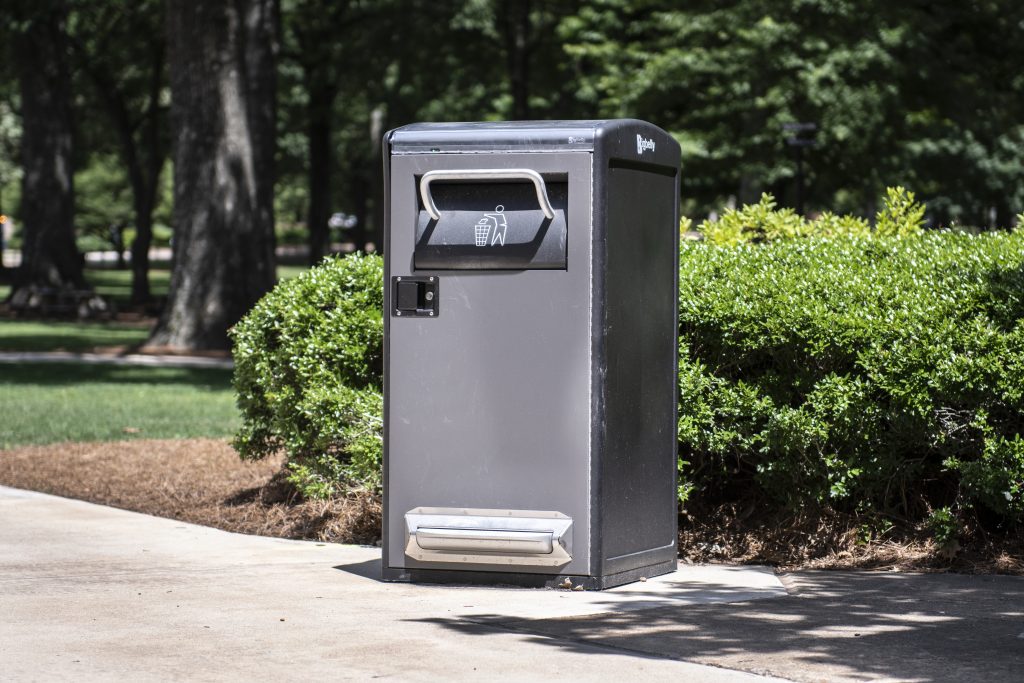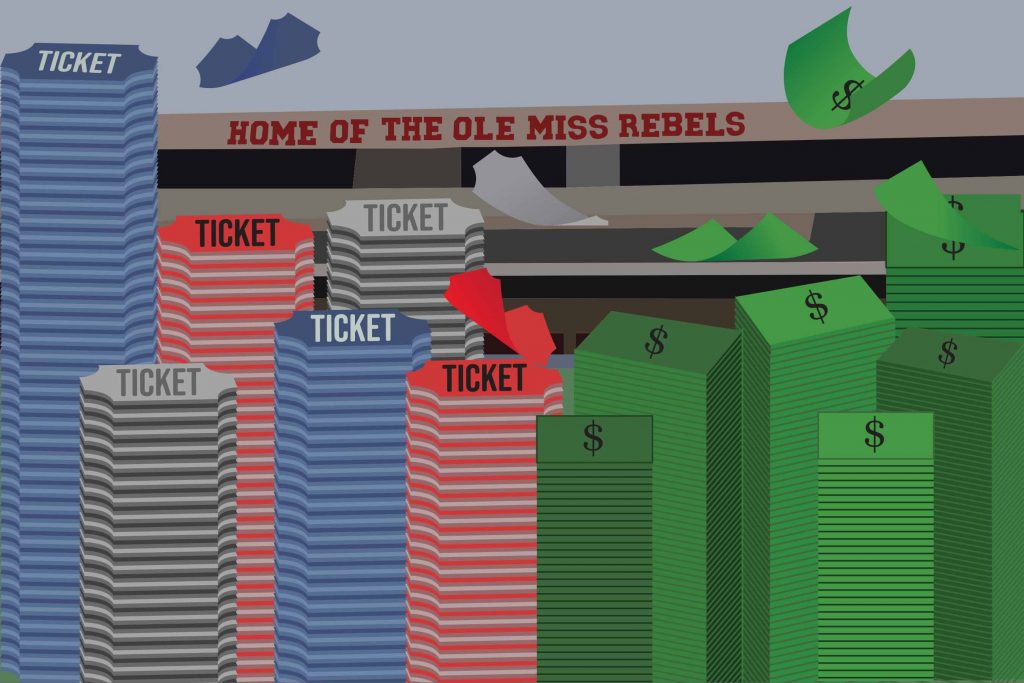The University of Mississippi installed the solar-powered, network-connected trash cans that communicate with one another when they are full or nearing capacity in December.
The 12 compacting and 13 non-compacting BigBelly garbage bins are strategically located in high-traffic waste areas, including the Grove and the library.
The compacting units hold 150 gallons each, and the non-compacting units hold 50 gallons each. The standard Victor Stanley green steel garbage cans, which can be found in most areas on campus, hold 36 gallons.

BigBelly garbage bins cost $4,000 per unit when purchased individually, but the university rents the BigBelly units through the BigBelly Connect Program on a five-year lease that costs $4,560 per unit. The plan includes most maintenance and repairs.
The university pays $1,900 per month for the 25 BigBelly units. At the end of the five-year lease, the university will have paid $114,000 in total for the garbage bins. The Victor Stanley bins cost $748.
This year, Landscape Services has paid BigBelly a total of $17,554 in rental, shipping and installation fees as well as garbage bags.
The university purchased garbage bags from BigBelly initially but now buys them locally.
The BigBelly units were shipped to Oxford in November 2018 and installed on campus in December. Landscape Services began payments in January.
BigBelly rental services cover all repair costs excluding vandalism, UM Sanitation Supervisor Steven Boatright said. Breakdowns require a BigBelly representative to make repairs.
The garbage bins also contain a $500 battery that needs to be replaced every five years, which is included in the rental.
“Everything is included except pretty much acts of God, like hurricanes and things like that,” said Brendan McLaughlin, Inside Sales Account Manager at BigBelly.
Because the BigBelly bins communicate when they’re full, this allows work crews to avoid containers that aren’t full yet, Erin Griffin, BigBelly sales representative for the university, said
“(With) stations with the compaction as well as the ability to see exactly how full the stations are at any given time, universities typically will reduce their collections by about 80 percent,” Griffin said. “So that allows them to reallocate staff hours to doing other things like landscaping or painting or other things that they can use those people to help with.”
Even with the new bins in place, there is still a system in place to pick up trash on campus every morning.
Unlike the compacting units in high-traffic waste areas, the non-compacting units are located in “outskirts” like Rowan Oak and the William F. Galtney Indoor Tennis Facility, Boatright said.
Other universities, such as the University of Washington and Brown University, have installed BigBelly bins and seen success.
Graduate students at the University of Washington conducted a cost-benefit analysis on installing BigBelly units in the City of Seattle Parks. The study found that BigBelly garbage bins would decrease carbon dioxide emissions and make the air quality in the city better.
The American Lung Association does not have a data collection monitor in Lafayette County, but installing BigBelly units has reduced the amount of motorized golf cart use on campus.
“When they get full, they generate a signal to the computer,” Boatright said. “We don’t have to make trips out to them to check them and see whether they need to be serviced until they’re full and give us the signal so we don’t waste trips.”
Boatright said that the main reason the university is renting the BigBelly waste bins is to cut down on working hours and help the waste collection system operate more efficiently.
If the university decides that the BigBelly units were not beneficial at the end of the five-year rental, they can opt out of the contract and BigBelly will recollect the bins.
“This is just a trial run to see whether it actually is going to help us or if it’s going to make us more efficient or take more time, more money,” Boatright said. “This is just a trial run to see how they do.”















